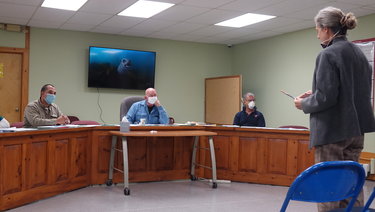Rensselaerville sees little change in tentative $2.6M budget for 2021
RENSSELAERVILLE — Spending is down in Rensselaerville’s tentative 2021 budget, but only by a margin, and revenues are likewise only down a touch, leaving a budget that’s much the same as the budget the town board adopted in 2020.
The tentative 2021 budget summarizes total expenses — including special districts, which are largely self-funded by taxes within those districts — at $2,601,799, which is $36,677 lower than the total expenditures of the adopted 2020 budget.
Revenue is down $34,600 overall. The major factors are a projected sales-tax loss of $45,000 offset by $10,000 listed as “Other unclassified” in the “Miscellaneous” revenue account. Total revenue from county sales tax is projected at $575,000.
John Dolce, who, as Rensselaerville’s supervisor, is the town’s chief financial officer, could not be reached for comment. Dolce, like his deputy, Jason Rauf, rarely responds to Enterprise inquiries.
By state law, a tentative budget must be filed with the town clerk by Sept. 30 and must be presented to the town board at a regular or special meeting by Oct. 5. Once the board has reviewed the tentative budget, with an opportunity to make changes, it becomes the town’s preliminary budget, made available to the public.
On or before the Thursday after the general election in November, a public hearing is to be held on the budget after which the town board may revise the spending plan. The board must adopt the budget by Nov. 20.
Without insight from its creator, analyzing a budget can be difficult, as funds can be relabeled but still used for the same purpose, and it’s not known what’s behind a change in a line value and what that implies for services and workers, the two main focal points for town residents.
Further, a tentative budget is only a first draft of what will eventually be a preliminary budget and finally an adopted budget, with residents given the opportunity to provide feedback based on the draft and the potential for drastic changes before the adoption deadline of Nov. 20.
What’s clear is that Dolce largely stayed away from salary increases for town officials and employees. Dolce caught fire from a small number of residents last year after including a series of what he called low-dollar raises but which Marie Dermody, a former town supervisor, called high-percentage raises.
As an example, the four town board members each received a $500 salary increase, bringing their total salary to $4,000. Dolce received a $2,000 raise, bringing his salary to $16,500. These amount to a 14.3-percent raise and a 13.8-percent raise, respectively.
In the Hilltowns, town board positions, including supervisor, are understood to be part-time jobs, usually held by retirees or people who have a career elsewhere, but they nevertheless require significant time and energy.
Dolce told The Enterprise last year that he spends anywhere from 20 to 50 hours per week handling town business. Dolce owns a number of local businesses, including a self-storage service and a motorsports store.
Some positions that may see an increase in 2021 are the supervisor’s bookkeeper, who will receive an additional $630 for a total of $24,300, and the highway superintendent, who will receive an additional $980 for a total of $49,296.
The building inspector’s clerk may see a salary cut of $900, leaving the salary at $3,000. Cuts like these are often based on a reduction of hours.
Notably absent from the budget is a property tax projection as well as highway funding through the Consolidated Highway Improvement Program, a state fund that accounts for a large portion of highway department revenues in the Hilltowns.
Last year, the highway department was projected to receive $181,446 (compared to $681,361 in department expenses). It’s possible that Dolce is waiting to project this number, which, like other state funding this year, was thrown into a haze by the coronavirus pandemic.
The New York State Department of Transportation CHIPs budget proposal, published in April, projects a total of $130,783,647.95 to be distributed to towns in the 2020/21 fiscal cycle. This is an increase of $18,767.40 from the last cycle.



